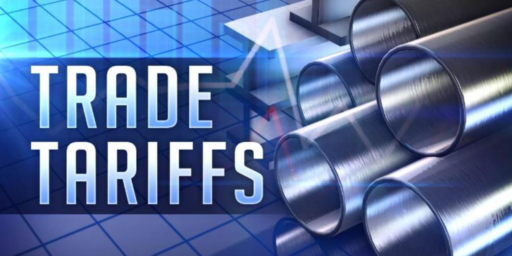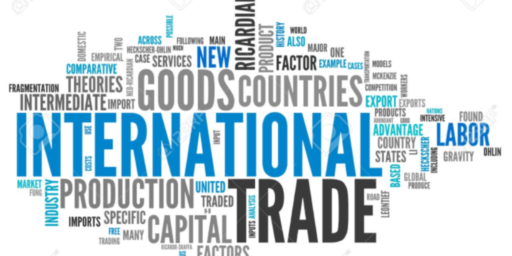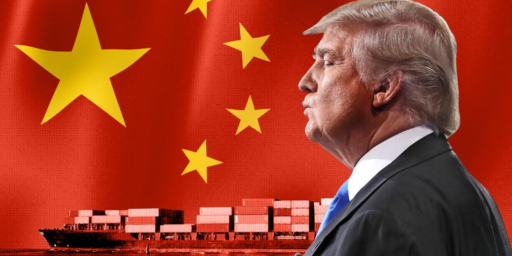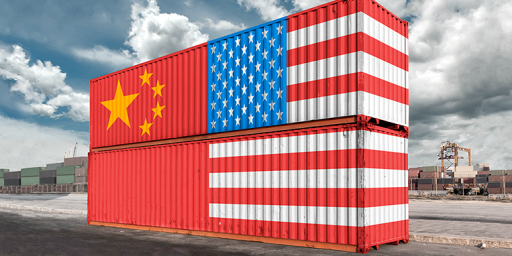The Guns of August September
On Friday President Obama decided to levy a 35% tariff on tires imported from China. This morning China has responded by beginning the process of imposing tariffs on U. S. auto products and chicken white meat:
HONG KONG — China unexpectedly increased pressure Sunday on the United States in a widening trade dispute, taking the first steps toward imposing tariffs on American exports of automotive products and chicken meat in retaliation for President Obama’s decision late Friday to levy tariffs on tires from China.
The Chinese government’s strong countermove followed a weekend of nationalistic vitriol against the United States on Chinese Web sites in response to the tire tariff. “The U.S. is shameless!” said one posting, while another called on the Chinese government to sell all of its huge holdings of Treasury bonds.
This move bears comparison with President George W. Bush’s move, early in his presidency, to impose a tariff on Chinese steel, a move that was later overruled by the WTO. Bush’s actions were largely the result of a campaign promise to West Virginia steelworkers and they did not have broad support within the president’s own political party. Although no less foolhardy than Bush’s actions, President Obama’s are even more concerning for a number of reasons.
First and foremost, the economic climate is significantly different today than it was in 2002. The post-9/11 economic downturn was minor in comparison to today’s. President Obama’s economic incentives for his actions are commensurately stronger. The political environment that President Obama faces is quite different from the one that President Bush faced. Nearly every significant interest group in President Obama’s base provides at least some support for limiting imports, particularly Chinese imports. It’s harder to see a political downside to the actions for him. Dan Drezner points to the potential danger:
If I knew this was where the Obama administration would stop with this sort of nonsense, I’d feel a bit queasy but chalk it up to routine trade politics. When I look at Obama’s base, however, quasiness starts turning into true nausea.
China’s economic position is stronger than it was in 2002 and Chinese nationalism has grown right alone with that economic position. There’s substantial political support within China for a stern response by the Chinese authorities to what’s seen in China as an arrogant affront by the U. S. to China’s rightful position in the world order. Dan Indiviglio remarks:
The most obvious fear I see here is that China will retaliate. According to a separate article in the Wall Street Journal, they have already begun investigations into the U.S. “dumping” poultry and auto products in the Chinese market. The last thing you want during a global recession is a trade war. That would slow recovery across-the-board.
Additionally, due to the terms of China’s accession to the WTO and the world economic downturn there will probably be political support in any number of other countries for U. S. tariffs against China. Once any country, e.g. the United States, has imposed tariffs against Chinese imports, other WTO members are legally entitled to do so whether Chinese imports can be demonstrated to have injured their domestic industries or not. And nowadays there are protectionist pressures building practically everywhere.
Brad DeLong, not generally a fullthroated critic of the Obama Administration, is sharp in his retort:
Looks like we could (a) let the Chinese sell us tires, (b) tax each tire by $2.50, (c) pay each tire worker who loses his or her job $100K a year, and we come out ahead: American households have more money to spend on other things, China has more jobs to help what is still a very poor country grow, and tire workers have higher incomes and more leisure as well.
But, you say, it would be stupid to impose a $2 a tire tax and use the money to pay each laid-off tire worker $100K a year.
That’s the point: when the policy you are adopting is worse for everybody than a policy you agree is stupid, the policy you are adopting is best characterized as really stupid.
We face a conundrum. We have plenty of trade grievances with China and we’ve already filed a half dozen different complaints against China with the WTO that are awaiting resolution. Among our greatest concerns in trade negotiations are routine Chinese ignoring of U. S. intellectual property rights. Additionally, China’s de facto pegging of their currency to ours is arguably one of the forces behind the asset inflation that is one of the root causes of the economic problems we’ve been suffering for the last year or so.
However, as I watch these events unfold I can’t help but worry that we’re seeing the economic equivalent of the assassination of Archduke Ferdinand in which all of the great powers hurtle willy-nilly towards a truly stupid trade war.






While I fully agree that the tire tariff is stupid, I doubt this will escalate to a trade war. The WTO works pretty well, and it allows politicians to have their protectionist cake and eat the free trade cake later b/c they can make a big show about “protection” knowing full well that the WTO will shoot it down a couple of years later before it can do lasting harm.
It seems really odd to do a tariff at exactly the time everyone agree you shouldn’t do a tariff. It makes me wonder what the missing data is.
Edward Harrison of Credit Writedowns (hosted at Naked Capitalism) thinks it’s the Chinese-side drive away from the Dollar:
I’ve missed the story here. Why tires? How ’bout tariffs for their lead-laden toys, mystery-material drywall, and poisonous baby formula, dog food, and toothpaste? Or are they now making their tires with the same safety-first mentality?
Didn’t Bush play this same game with the steel industry?
I find this interesting coming from someone who seems to favor a one world economy. Perhaps it’s just a win the vote thing.
Obama’s Smoot-Hawley moment?
I believe Bush put a tariff on all imported steel not just Chinese steel. He may have meant to target the Chinese however Bush had some wiggle room whereas Obama wisely targeted the Chinese specifically. They hold a great deal of our debt and may become necessary to buy more. I guess if you wanted to start and economic disaster this would be as good a way as any.
Didn’t you read the post you’re commenting on?
Well, it is pretty clear that Obama is trying to replay history–first is his decision to emulate Hitler through the health plan and now it’s this.
Luckily 9 million people marched on Washington Saturday to show this guy just who is in charge. America ain’t going to put up with it no more.
Chinese auto parts are notoriously and demonstrably inferior, in some cases even dangerous. As long as the poor quality persists, savvy buyers will continue to eschew Chinese auto parts and their threat to life and limb.
Scrupulous dealers will continue to be wary of these products , which is a sort of “tariff” in and of itself. Margins do, however, tend to dissolve resolve.
Quality control can represent a significant part of cost. Consider this unrelated example…
An integrated circuit part with a guaranteed failure rate of +- 1% might cost $4, while the same part with no guarantee from the same manufacturing line, may cost as little as 5 cents and have a 25% failure rate.
The recent massive recall of Chinese Schrader valve stems also demonstrates this issue, without quality control failure rates soar!
You would think this issue would render an actual tariff moot.
However, as I watch these events unfold I can’t help but worry that we’re seeing the economic equivalent of the assassination of Archduke Ferdinand in which all of the great powers hurtle willy-nilly towards a truly stupid trade war.
We’re already experiencing the consequences of several decades’ worth of “truly stupid” trade policies, based on magic-pony trade theory, and sustained by an obdurate continued belief in the same. The current economy-wrecking trade deficits are not sustainable, and no nickel-and-dime tariffs, and no amount of pious op-eds scare-mongering about “protectionism”, will change that, any more than preventing the assassination of the archduke would have discharged all the tectonic tensions that led to the disaster of the Great War.
And I dearly wish people would stop invoking Smoot-Hawley as a magic anathematizing talisman, as if its very mention explains everything and “proves” the inefficacy of any and all tariff measures. Smoot-Hawley did not cause the Great Depression, and it had, at most, a very limited role in exacerbating or prolonging it – and even that limited effect must be weighed against the understanding that a an exporting, creditor nation (as the U.S. was in the ’30s) is in a very different situation than a net-importer, debtor nation.